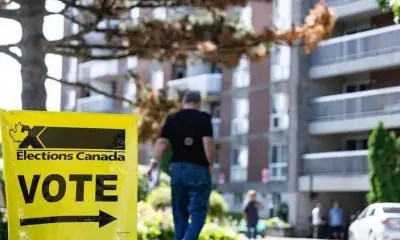Elon Musk is buying Twitter and has promised to rededicate the site to untrammeled free speech. Meanwhile, former president Barack Obama, citing the dangerous spread of “misinformation,” has called for governmental content regulation of social media. Both claim to be defending democracy and truth.
Politics
Opinion | Truth and politics don't necessarily go together. Good luck fixing that. – The Washington Post
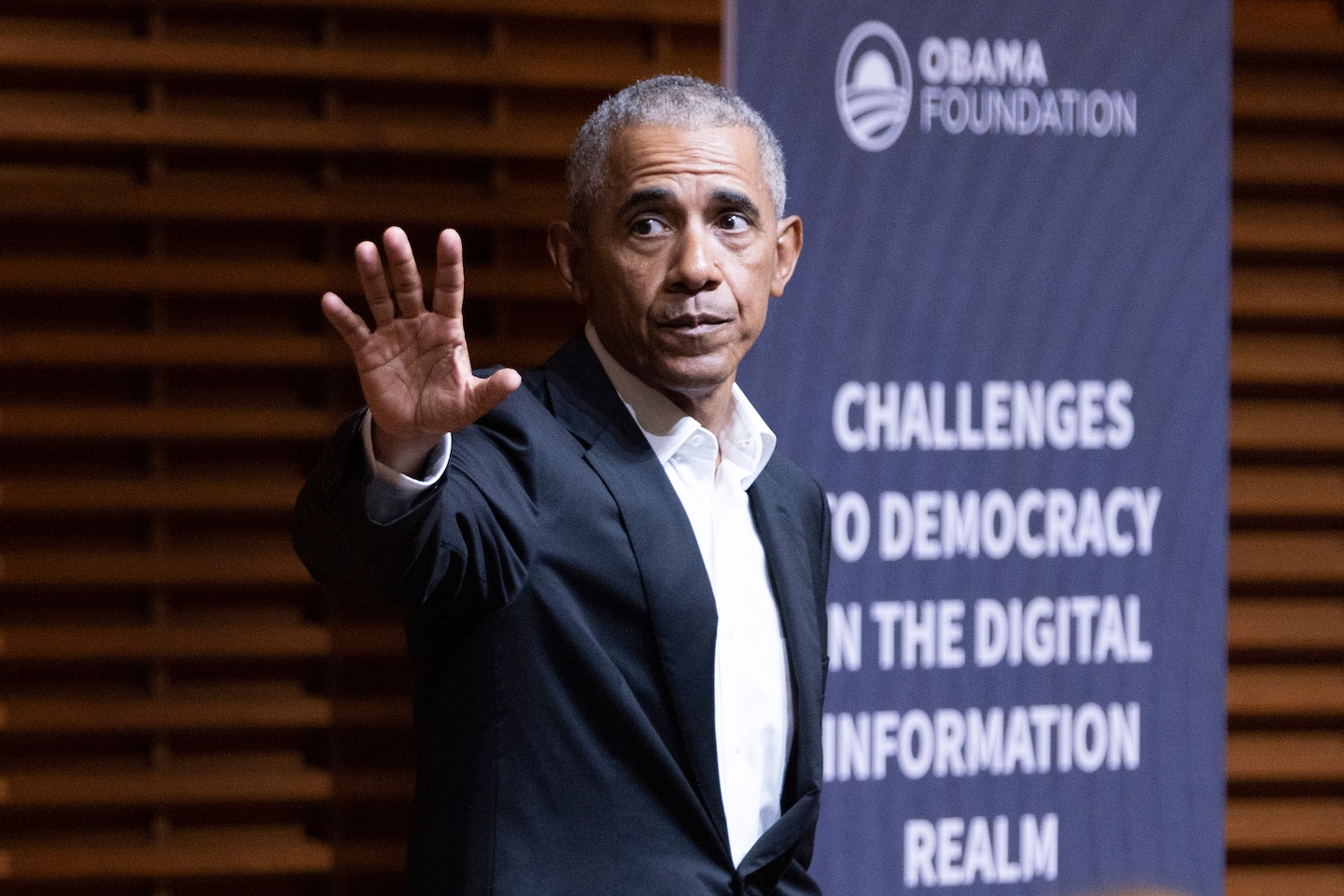
Who’s right? The answer is: Jonathan Haidt. Also, Hannah Arendt.
Haidt is a social psychologist at New York University and author of a cover story in the Atlantic about the destructive political impact of social media.
While sharing Obama’s assessment of social media’s harms, Haidt is more realistic about how hard it would be to design government-mandated content controls without sacrificing social media’s benefits — or devolving into censorship. It’s more important, Haidt convincingly argues, to fortify people’s independent ability to evaluate social media content than to control their access to it.
That means changing platform architecture to slow the spread of fake or anger-generating content, perhaps by modifying the “share” function on Facebook, a substantively neutral reform that would infringe no one’s free expression but could create time for that basic democratic act: deliberation.
This gets at what’s genuinely new about social media — its sheer velocity and “virality” — as compared with past innovations in communications technology that also caused worries about democracy. Haidt also calls for ridding social media of bots and fake accounts by making “verification … a precondition for gaining the algorithmic amplification that social media offers” — or, in Musk’s more succinct formulation, “authenticating all humans.”
That was a good promise for Musk to make. His error may be overconfidence about maintaining a Twitterverse that consistently practices the free speech absolutism he preaches but still makes money — whether through selling ads, selling subscriptions or some other means.
Musk may soon have to decide whether to let former president Donald Trump back on Twitter, which would certainly be a pro-free speech move. Either way Musk goes, however, could infuriate, and alienate, millions. Musk has said he would soften, but not abandon, content moderation, which seems like it would keep Twitter in the business of facing dilemmas and managing trade-offs.
And that brings us to Arendt, the 20th century student of totalitarianism and author of a classic 1967 essay, “Truth and Politics.”
“No one has ever doubted that truth and politics are on rather bad terms with each other,” she wrote, “and no one … has ever counted truthfulness among the political virtues.”
From the demagogue’s bigotry, to the candidate’s unkeepable promise, to the diplomat’s white lie, some form of mis- and disinformation has forever been enmeshed in political discourse and activity and always will be. To this “commonplace” observation, Arendt added the admonition: “Nothing would be gained by simplification or moral denunciation.”
Gloomy words, but a useful corrective to Obama’s belief in “public oversight” of social media, which is so reminiscent of Walter Lippmann’s proposal — a century ago — for a “specialized class” of advisers to mediate between propaganda-prone voters and government officials.
As a sheer matter of unalienable individual rights, Musk’s free speech maximalism is preferable to Obama’s neo-Lippmannism. Yet to the extent the case for free speech hinges on its social benefits as well as individual fulfillment, Arendt splashed some cold water on it, too.
A Jew who had witnessed the collapse of Weimar Germany and fled the Nazi regime, she knew democracies were vulnerable to extremists bent on using freedom of speech and assembly to destabilize and destroy the system. “The chances of factual truth surviving the onslaught of power are very slim indeed,” she wrote, “it is always in danger of being maneuvered out of the world not only for a time but, potentially, forever.”
Arendt placed her hope in intellectuals — artists, scientists, historians, judges and journalists — whose vocations centered on the pursuit of truth, however inevitably imperfect, and thus “require non-commitment and impartiality, freedom from self-interest in thought and judgment.”
The more apolitical these professionals are, Arendt argued, the more paradoxically useful and necessary they are to “the political realm,” as sources of trusted information, analysis and ideas.
Painful and lonely though it can be to stand apart from the community and its political contests, Arendt wrote, impartial pursuit of truth has its rewards. One, she posits, is to be a part of an ancient tradition that began when Homer, reporting in verse on the Trojan War, chose to praise both the Greek hero Achilles and his enemy Hector of Troy, and continued when Herodotus acknowledged “the great and wondrous deeds of the Greeks and barbarians” alike.
These notions seem anything but realistic today, when academia has embraced social activism, judicial nominations are subjected to partisan vetting and many journalists disclaim “bothsidesism.”
Still, Arendt reminds us that seeking truth requires a willingness to consider opposing points of view, a form of empathy that is at “the root of … this curious passion, unknown outside Western civilization, for intellectual integrity at any price.”
American society needs to rededicate itself to that tradition, without which ownership changes and technical tweaks to social media will not make much difference anyway.
Politics
NDP declares victory in federal Winnipeg byelection, Conservatives concede
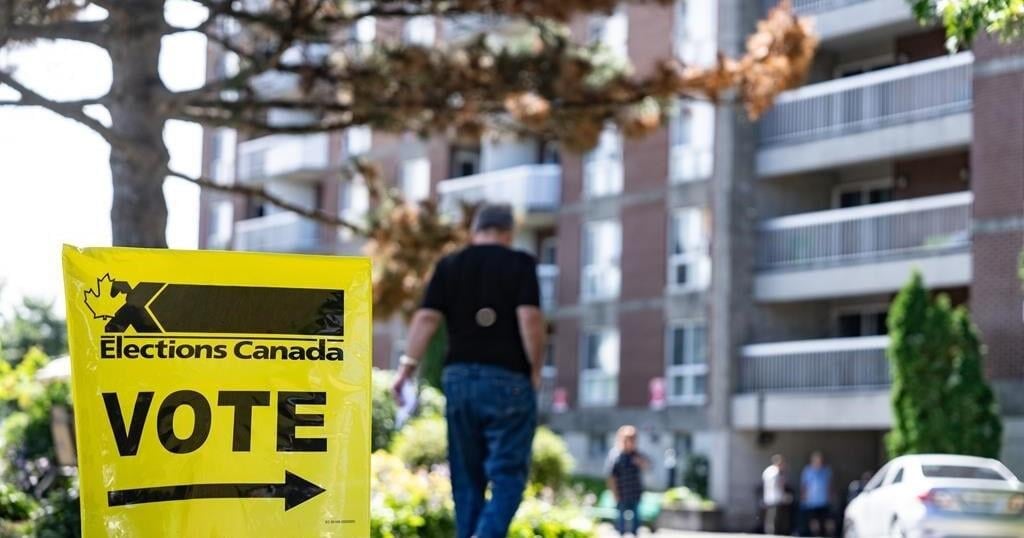
The New Democrats have declared a federal byelection victory in their Winnipeg stronghold riding of Elmwood—Transcona.
The NDP candidate Leila Dance told supporters in a tearful speech that even though the final results weren’t in, she expected she would see them in Ottawa.
With several polls still to be counted, Conservative candidate Colin Reynolds conceded defeat and told his volunteers that they should be proud of what the Conservatives accomplished in the campaign.
Political watchers had a keen eye on the results to see if the Tories could sway traditionally NDP voters on issues related to labour and affordability.
Meanwhile in the byelection race in the Montreal riding of LaSalle—Émard—Verdun the NDP, Liberals and Bloc Québécois remained locked in an extremely tight three-way race as the results trickled in slowly.
The Liberal stronghold riding had a record 91 names on the ballot, and the results aren’t expected until the early hours of the morning.
This report by The Canadian Press was first published Sept. 16, 2024.
The Canadian Press. All rights reserved.
Politics
Another incumbent BC United MLA to run as Independent as Kirkpatrick re-enters race
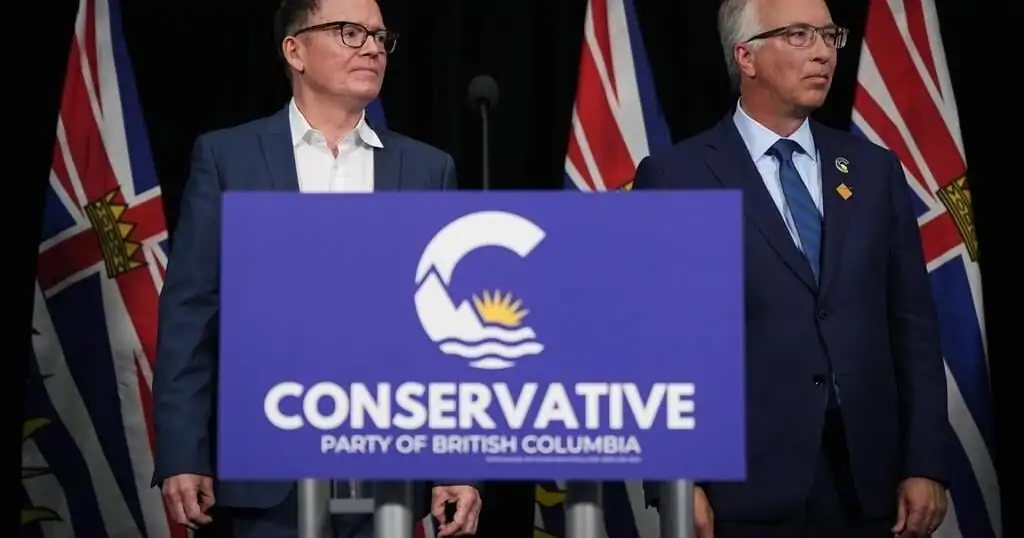
VANCOUVER – An incumbent BC United legislative member has reversed her decision not to seek re-election and has announced she’ll run as an Independent in the riding of West Vancouver-Capilano in the upcoming British Columbia election.
Karin Kirkpatrick has been a vocal critic of BC United Leader Kevin Falcon’s decision last month to suspend the party’s campaign and throw support behind the B.C. Conservatives under John Rustad.
Kirkpatrick announced her retirement this year, but said Monday that her decision to re-enter the race comes as a direct result of Falcon’s actions, which would force middle-of-the-road voters to “swing to the left” to the NDP or to move further right to the Conservatives.
“I did hear from a lot of constituents and a lot of people who were emailing me from across B.C. … that they didn’t have anybody to vote for,” she said. “And so, I looked even at myself, and I looked at my riding, and I said, ‘Well, I no longer have anybody to vote for in my own riding.’ It was clearly an issue of this missing middle for the more moderate voter.”
She said voters who reached out “don’t want to vote for an NDP government but felt deeply uncomfortable” supporting the provincial Conservatives, citing Rustad’s tolerance of what she calls “extreme views and conspiracy theorists.”
Kirkpatrick joins four other incumbent Opposition MLAs running as Independents, including Peace River South’s Mike Bernier, Peace River North’s Dan Davies, Prince George-Cariboo’s Coralee Oakes and Tom Shypitka in Kootenay-Rockies.
“To be honest, we talk just about every day,” Kirkpatrick said about her fellow BC United incumbents now running as Independents. “We’re all feeling the same way. We all need to kind of hold each other up and make sure we’re doing the right thing.”
She added that a number of first-time candidates formerly on the BC United ticket are contacting the group of incumbents running for election, and the group is working together “as good moderates who respect each other and lift each other up.”
But Kirkpatrick said it’s also too early to talk about the future of BC United or the possibility of forming a new party.
“The first thing we need to do is to get these Independent MLAs elected into the legislature,” she said, noting a strong group could play a power-broker role if a minority government is elected. “Once we’re there then we’re all going to come together and we’re going to figure out, is there something left in BC United, BC Liberals that we can resurrect, or do we need to start a new party that’s in the centre?”
She said there’s a big gap left in the political spectrum in the province.
“So, we just have to do it in a mindful way, to make sure it’s representing the broadest base of people in B.C.”
Among the supporters at Kirkpatrick’s announcement Monday was former longtime MLA Ralph Sultan, who held West Vancouver-Capilano for almost two decades before retiring in 2020.
The Metro Vancouver riding has been a stronghold for the BC Liberals — the former BC United — since its formation in 1991, with more than half of the votes going to the centre-right party in every contest.
However, Kirkpatrick’s winning margin of 53.6 per cent to the NDP’s 30.1 per cent and the Green’s 15.4 per cent in the 2020 election shows a rising trend for left-leaning voters in the district.
Mike McDonald, chief strategy officer with Kirk and Co. Consulting, and a former campaign director for the BC Liberals and chief of staff under former Premier Christy Clark, said Independent candidates historically face an uphill battle and the biggest impact may be splitting votes in areas where the NDP could emerge victorious.
“It really comes down to, if the NDP are in a position to get 33 per cent of the vote, they might have a chance of winning,” McDonald said of the impact of an Independent vote-split with the Conservatives in certain ridings.
He said B.C. history shows it’s very hard for an Independent to win an election and has been done only a handful of times.
“So, the odds do not favour Independents winning the seats unless there is a very unique combination of circumstances, and more likely that they play a role as a spoiler, frankly.”
The B.C. Conservatives list West Vancouver School District Trustee Lynne Block as its candidate in West Vancouver-Capilano, while the BC NDP is represented by health care professional Sara Eftekhar.
Kirkpatrick said she is confident that her re-entry to the race will not result in a vote split that allows the NDP to win the seat because the party has always had a poor showing in the riding.
“So, even if there is competition between myself and the Conservative candidate, it is highly unlikely that anything would swing over to the NDP here. And I believe that I have the ability to actually attract those NDP voters to me, as well as the Conservatives and Liberals who are feeling just lost right now.”
This report by The Canadian Press was first published Sept. 16, 2024.
News
Blinken is heading back to the Middle East, this time without fanfare or a visit to Israel
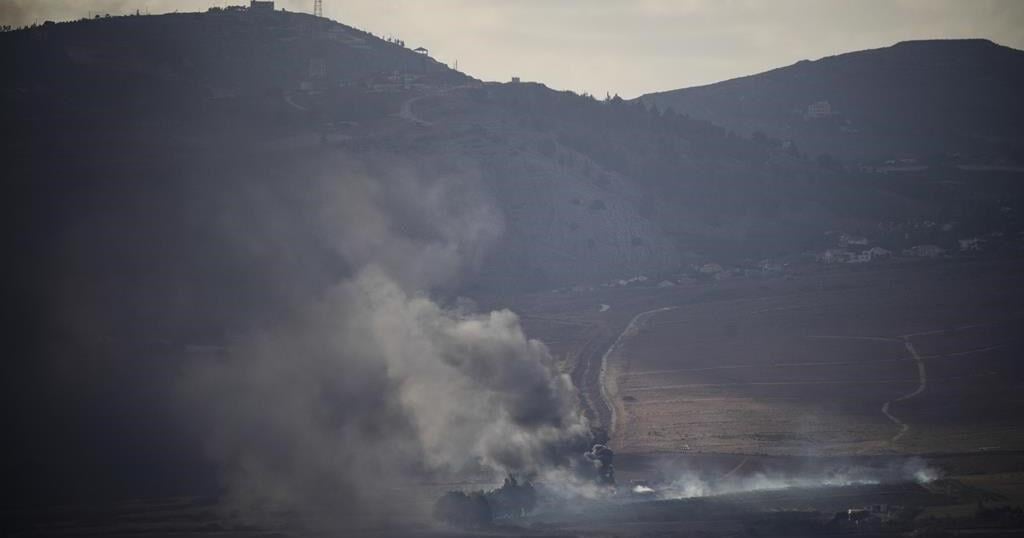
WASHINGTON (AP) — Secretary of State Antony Blinken heads to Egypt on Tuesday for his 10th trip to the Middle East since the war in Gaza began nearly a year ago, this one aimed partly at refining a proposal to present to Israel and Hamas for a cease-fire deal and release of hostages.
Unlike in recent mediating missions, America’s top diplomat this time is traveling without optimistic projections from the Biden administration of an expected breakthrough in the troubled negotiations.
Also unlike the earlier missions, Blinken has no public plans to go to Israel to meet with Prime Minister Benjamin Netanyahu on this trip. The Israeli leader’s fiery public statements — like his declaration that Israel would accept only “total victory” when Blinken was in the region in June — and some other unbudgeable demands have complicated earlier diplomacy.
Blinken is going to Egypt for talks Wednesday with Egyptian Foreign Minister Badr Abdelatty and others, in a trip billed as focused both on American-Egyptian relations and Gaza consultations with Egypt.
The tamped-down public approach follows months in which President Joe Biden and his officials publicly talked up an agreement to end the war in Gaza as being just within reach, hoping to build pressure on Netanyahu’s far-right government and Hamas to seal a deal.
The Biden administration now says it is working with fellow mediators Egypt and Qatar to come up with a revised final proposal to try to at least get Israel and Hamas into a six-week cease-fire that would free some of the hostages held by Hamas in exchange for Palestinian prisoners held by Israel. Americans believe public attention on details of the talks now would only hurt that effort.
American, Qatari and Egyptian officials still are consulting “about what that proposal will contain, and …. we’re trying to see that it’s a proposal that can get the parties to an ultimate agreement,” State Department spokesman Matthew Miller said Monday.
The State Department pointed to Egypt’s important role in Gaza peace efforts in announcing last week that the Biden administration planned to give the country its full $1.3 billion in military aid, overriding congressional requirements that the U.S. hold back some of the funding if Egypt fails to show adequate progress on human rights. Blinken told Congress that Egypt has made progress on human rights, including in freeing political prisoners.
Blinken’s trip comes amid the risk of a full-on new front in the Middle East, with Israel threatening increasing military action against the Hezbollah militant organization in Lebanon. Biden envoy Amos Hochstein was in Israel on Monday to try to calm tensions after a stop in Lebanon.
Hezbollah has one of the strongest militaries in the Middle East, and like Hamas and smaller groups in Syria and Iraq it is allied with Iran.
Hezbollah and Israel have exchanged strikes across Israel’s northern border with Lebanon since the Oct. 7 attack by Hamas started the war in Gaza. Hezbollah says it will ease those strikes — which have uprooted tens of thousands of civilians on both sides of the border — only when there’s a cease-fire in Gaza.
Hochstein told Netanyahu and other Israeli officials that intensifying the conflict with Hezbollah would not help get Israelis back in their homes, according to a U.S. official. The official, who spoke on the condition of anonymity to discuss the private talks, said Hochstein stressed to Netanyahu that he risked sparking a broad and protracted regional conflict if he moved forward with a full-scale war in Lebanon.
Hochstein also underscored to Israeli officials that the Biden administration remained committed to finding a diplomatic solution to the tensions on Israel’s northern border in conjunction with a Gaza deal or on its own, the official said.
Netanyahu told Hochstein that it would “not be possible to return our residents without a fundamental change in the security situation in the north.” The prime minister said Israel “appreciates and respects” U.S. support but “will do what is necessary to maintain its security and return the residents of the north to their homes safely.”
Israel Defense Minister Yoav Gallant, meanwhile, warned in his meeting with Hochstein that “the only way left to ensure the return of Israel’s northern communities to their homes will be via military action,” his office said.
In Gaza, the U.S. says Israel and Hamas have agreed to a deal in principle and that the biggest obstacles now include a disagreement on details of the hostage and prisoner swap and control over a buffer zone on the border between Gaza and Egypt. Netanyahu has demanded in recent weeks that the Israeli military be allowed to keep a presence in the Philadelphi corridor. Egypt and Hamas have rejected that demand.
The Hamas-led attacks in southern Israel on Oct. 7 killed about 1,200 people. Militants also abducted 250 people and are still holding around 100 hostages. About a third of the remaining hostages are believed to be dead.
Israel’s offensive in Gaza has killed more than 41,000 Palestinians, said Gaza’s Health Ministry, which does not distinguish between civilians and militants in its count. The war has caused widespread destruction, displaced a majority of Gaza’s people and created a humanitarian crisis.
Netanyahu says he is working to bring home the hostages. His critics accuse him of slow-rolling a deal because it could bring down his hardline coalition government, which includes members opposed to a truce with the Palestinians.
Asked earlier this month if Netanyahu was doing enough for a cease-fire deal, Biden said, simply, “no.” But he added that he still believed a deal was close.
___
Associated Press writer Aamer Madhani contributed to this report.
-

 Politics22 hours ago
Politics22 hours agoNext phase of federal foreign interference inquiry to begin today in Ottawa
-

 News22 hours ago
News22 hours agoVoters head to the polls for byelections in Montreal and Winnipeg
-

 News7 hours ago
News7 hours agoWorld Junior Girls Golf Championship coming to Toronto-area golf course
-

 Economy20 hours ago
Economy20 hours agoLiberals announce expansion to mortgage eligibility, draft rights for renters, buyers
-

 News22 hours ago
News22 hours agoVerdict expected in rape trial for former military leader Haydn Edmundson
-

 Sports19 hours ago
Sports19 hours agoPenguins re-sign Crosby to two-year extension that runs through 2026-27 season
-

 News22 hours ago
News22 hours agoFeds wary of back-to-work legislation despite employer demands: labour experts
-

 Business7 hours ago
Business7 hours agoPolitics likely pushed Air Canada toward deal with ‘unheard of’ gains for pilots





